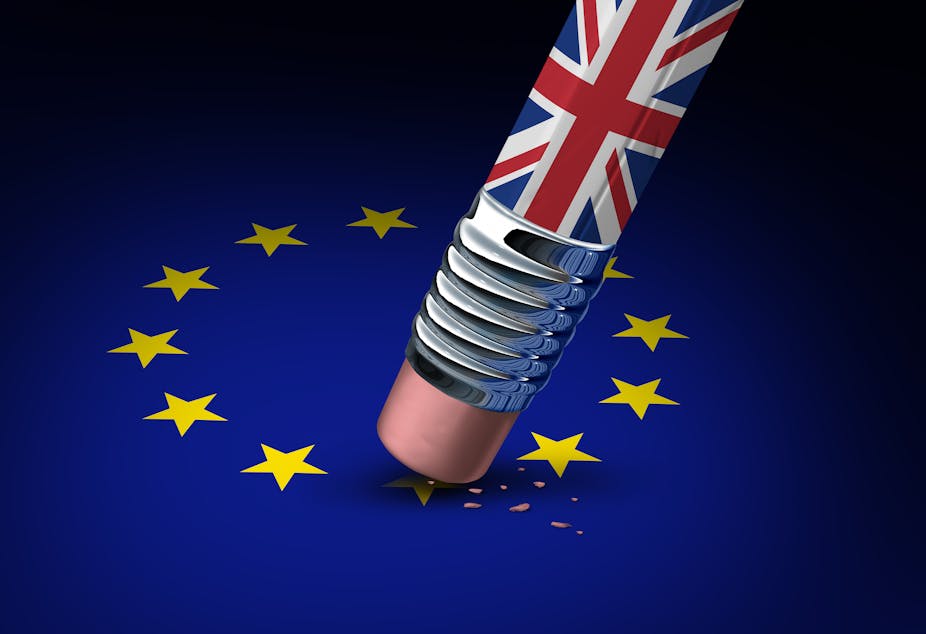The language of sovereignty and supremacy was rife in the EU referendum debates. According to leading Brexiter Boris Johnson, it was the deciding factor in the vote to leave the EU. He said that the “only change” in Brexit will be that “the UK will extricate itself from the EU’s extraordinary and opaque system of legislation: the vast and growing corpus of law enacted by a European Court of Justice from which there can be no appeal”.
In the run up to the big day, British voters were invited to denounce the supremacy of the European Court of Justice (ECJ) in Luxembourg over their “fate”.
Misleading statements were made about an unaccountable court seeking to extend its power into member states against the wishes of democratically elected governments.
Now Brexit is happening and many expect a blissful renewal of sovereignty to be just around the corner. But the truth is, what many see as the most beneficial deal for Brexit Britain – membership of the European Economic Area – comes with many of the same legal rules as EU membership, and much of the same influence from the ECJ.
Days after the referendum, the pro-Leave Telegraph argued that the Norway model would be the only way to “keep Britain together”. It seems to be the only clear way to retain access to the single market (though we don’t yet know how important that is to the British government and whether it is willing to accept some kind of free movement of people to keep that access).
Difficult partner
Johnson has been particularly critical of the ECJ, which has challenged the UK several times about breaching EU law.
It did so over a dispute as to whether the UK could require fishing vessels to be 75% British owned in order to be registered, and when the UK resisted extending protection from disability discrimination to carers, for example.
The EFTA Court, the EEA’s court, is not constitutionally supreme, so in that respect might seem more like the European Court of Human Rights and more acceptable to those concerned with sovereignty. But the whole system relies on EEA countries choosing to implement the court’s rulings – in other words acting as though it were supreme.
The three judges that preside over this little court (also in Luxembourg) are unlikely to produce different rulings to those of the Court of Justice.

The EFTA Court issues a ruling when a state stands accused of infringing the EEA agreement, just as the Court of Justice deals with complaints about countries breaking EU law. It also gives “advisory opinions” where members ask questions about the interpretation of the EEA agreement. Disregarding its infringement rulings or advisory opinions would breach the EEA Agreement, and could lead to a break down of the EEA as a meaningful legal order. These judgments can cover any aspect of the EEA agreement – from the free movement of workers and goods to intellectual property to state aid and company law.
Give and take
A study on EU relations with Norway shows a “very good and close” relationship, partly explained by Norway having “faithfully implemented its obligations” to the EEA.
These obligations include implementing a lot of judgments of the ECJ – the court from which many Brexiters wish to escape. Although EEA countries cannot themselves be reviewed by this court, the EFTA Court has a strong tendency to interpret EEA law to conform with the findings of the ECJ (this is the “homogeneity principle”).
And while the UK might be hoping to negotiate some kind of exemption from free movement, it looks as though the free movement rights of people inside the EEA are the same as those in the EU - based on worker status, not citizenship.
For the EEA to continue to function well, its members must abide by EEA law, which means implementing EFTA Court rulings. This in turn means abiding by the applicable bits of EU law. And this all has to be done voluntarily – which begs the question as to whether the UK, apparently a reluctant rule-taker, is constitutionally well suited to such an obedient role.
Being a member of the EEA would, at the least, stop the British government from blaming Europe for unpopular laws. In the EEA, it would have to explain why it was choosing to follow supranational rulings, without being able to claim that its hands were tied.
This problem is not limited to EEA membership – it is just an especially pronounced example of how sovereignty cannot mean making our own decisions untrammelled by anyone else’s interests.
The EEA option reminds us that all international agreements involve mutual obligations. No agreement can be conducted just on one party’s terms, and Britain cannot expect other parties to be bound if it refuses to do its bit. That is not a loss of sovereignty. That is social existence.

